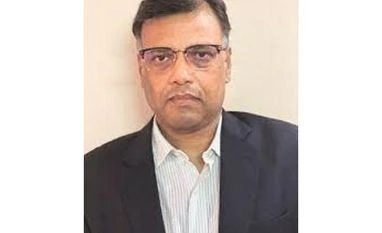By Swati Bhat
MUMBAI (Reuters) - India is nearing a big shift in its long-term goal of achieving open access to and convertibility in its markets with greater global integration and freer non-resident access to debt, Reserve Bank of India deputy governor T. Rabi Sankar said.
"India has come a long way in achieving increasing levels of convertibility on the capital account," Sankar said in a speech at a forex dealers event on Thursday, referring to the ability to convert local financial assets into foreign financial assets and vice versa.
Sankar said there was an effort to liberalize foreign portfolio investor flows into Indian debt further with the introduction of the Fully Accessible Route (FAR), which places no limit on non-resident investment in specified benchmark securities.
"Since over time, virtually all securities will fall under the FAR category, the move is unambiguously towards an eventual unfettered access for non-residents into government securities," he added.
He also said efforts to get the country included in global bond indexes and a move towards placing government securities under global custodians, once implemented, will encourage debt flows in the future.
Also Read
India's inclusion in global indexes could materialise in 2022, bringing potential inflows of between $30 billion and $40 billion, HSBC analysts estimate.
Despite the move towards greater convertibility, Sankar warned of the risks involved including sudden reversals of flows among others, which would need to be addressed.
"The rate of change in capital convertibility will only increase with each of these and similar measures," Sankar said.
"With that comes the responsibility to ensure that such flows are managed effectively with the right combination of capital flow measures, macro-prudential measures and market intervention".
He said market participants, particularly banks, need to prepare themselves to manage the business-process changes and global risks associated with capital convertibility, while the job of the central bank as regulator is somewhat different.
"The job of a regulator is like the gas regulator in the kitchen; it cannot ensure the quality of the dish, but it can prevent the kitchen from blowing up," Sankar said.
(Reporting by Swati Bhat; Editing by Hugh Lawson)
(Only the headline and picture of this report may have been reworked by the Business Standard staff; the rest of the content is auto-generated from a syndicated feed.)
)